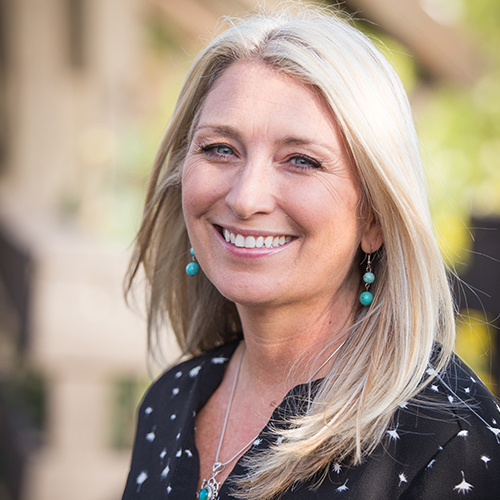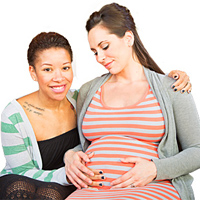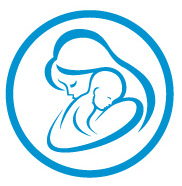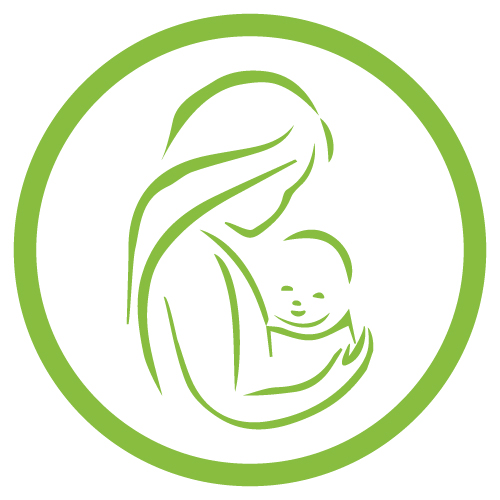 Perinatal Mental Health Online Course(s) & Continuing Education
Perinatal Mental Health Online Course(s) & Continuing Education
Access the latest clinical skills and research for Perinatal Mental Health for Postpartum professional training. These Perinatal Mental Health online courses provide practice-changing skills and valuable perspectives from leading global experts. This Perinatal Mental Health education has been accredited for a variety of CEUs / CERPs and can be accessed on-demand, at your own pace.

Perinatal Mood and Anxiety Disorders: An Overview for Childbirth Caregivers and Educators

Birdie is an RN with a Master’s Degree in Psychology/Counseling. She is a past president of Postpartum Support International (PSI), past Chair of Education and Training, and is currently serving as Director of Certification. Birdie is a Perinatal Mood Disorders International Trainer with Postpartum Support International and speaks frequently to communities, nursing schools, grand rounds, and conferences. Birdie specializes in the recognition and treatment of pregnancy and postpartum mood and anxiety disorders. She is the coordinator of the Perinatal Mood Disorders Program at Indiana University Health in Indianapolis, Indiana. Birdie is highlighted as a PMD expert in PSI’s DVD that is shown around the world: “Healthy Mom, Happy Family: Understanding Pregnancy and Postpartum Mood and Anxiety Disorders”.
In this session, you will learn about the many faces of Perinatal Mood and Anxiety Disorders–signs and symptoms, risk factors, screening, breastfeeding, and treatment options. You will also learn ways of integrating and teaching useful information about PMADs to your moms and families.

Postpartum Mood Disorders, Breastfeeding and the Epigenetic Links from Past Into Future

Laurel Wilson, IBCLC, CLE, CCCE, CLD is a TEDx and international speaker, author, pregnancy and lactation expert, and consultant. She served as the Executive Director of Lactation Programs for CAPPA, the Childbirth and Postpartum Professional Association for 16 years and now is on the Senior Advisor Board. She served on the Board of Directors for the United States Breastfeeding Committee from 2016-2019. She also is on the Advisory Board for InJoy Health. She owns MotherJourney, focusing on training perinatal professionals on integrative and holistic information regarding pregnancy, childbirth, and breastfeeding. She has her degree in Maternal Child Health: Lactation Consulting and is an internationally board certified lactation consultant. As the co-author of two books, The Attachment Pregnancy and The Greatest Pregnancy Ever, original Editor of the CAPPA Lactation Educator Manual, and contributing author to Round the Circle: Doulas Talk About Themselves, she loves to blend today’s recent scientific findings with the mind/body/spirit wisdom. Laurel has been joyfully married to her husband for nearly three decades and has two wonderful grown sons, whose difficult births led her on a path towards helping emerging families create positive experiences. She believes that the journey into parenthood is a life-changing rite of passage that should be deeply honored and celebrated.
Topic: Epigenetics and Breastfeeding: The Potential Longterm Impact of Breastmilk - [View Abstract]
Topic: Hold the Phone! Diet Does Matter During Breastfeeding: Implication of Diet on Fatty Acid Composition and Other Nutrients - [View Abstract]
Topic: Postpartum Mood Disorders, Breastfeeding and the Epigenetic Links from Past Into Future - [View Abstract]
Topic: Talk To Me: How Breastmilk Acts as a Communication and Gene Expression Tool Between Mother and Child - [View Abstract]
Topic: The Milk Sharing Conundrum - The Grey Area Between Scope and Need - [View Abstract]
Topic: The Placenta and Breastmilk-Unraveling the Mysterious World of the Intelligent Organs that Protect our Babies - [View Abstract]
Topic: Understanding Zika and Lyme and Breastfeeding - [View Abstract]
Topic: Unraveling the Mysteries of Human Milk: The Fascinating Role of Neohormones, Epigenetics, the Microbiome and More! - [View Abstract]
The relationship between breastfeeding and postpartum mood disorders has long been challenging for healthcare providers to completely understand. While the mental and sometimes physical challenges, as well as PMAD medications, can affect the breastfeeding relationship, the importance of continuing breastfeeding for the long-term genetic physical and mental health of the child is only now just beginning to be fully understood. Epigenetics, the environmental influence and expression of the genome, can be impacted by the breastmilk, the physical act of breastfeeding, and physical interaction between mother and child. During this presentation, you will develop an understanding of epigenetics, the role of breastmilk and breastfeeding behavior and our genes, and the epigenetic link that the past and future has to our mothering behaviors in the present.

View Details / Enroll


Briana Tillman received her undergraduate degree in International Relations from the United States Military Academy at West Point. She has been a La Leche League Leader for 9 years and is a board certified lactation consultant. After spending 10 years as a stay-at-home mom, she is currently in her third year of medical school at Rocky Vista University College of Osteopathic Medicine in Parker, Colorado. She loves spending time with her husband and three kids—as a family they like to travel, go camping, and play string instruments in “family ensemble.”
Nick is a 3rd year medical student at Rocky Vista University College of Osteopathic Medicine. He has a background in mechanical and systems engineering but found his calling in medicine after volunteering for Health4Haiti in 2011. He lives in Colorado with his wife and they enjoy hiking, camping and fishing in the great outdoors.
Topic: What a Letdown: Exploring the Physiology of the Milk Ejection Reflex - [View Abstract]
Due to the global shortage of mental health professionals, many primary care providers have become the first-line responders to a wide variety of psychiatric concerns. While lactation consultants and breastfeeding support counselors are not called upon to diagnose and treat mental health disorders, they nonetheless often become enmeshed in the topic due to the holistic nature of breastfeeding management. An understanding of the major psychiatric topics that can arise during lactation consultation is therefore a valuable asset.
In this presentation, we will describe mental health benefits and drawbacks of breastfeeding, and explore the controversy surrounding the “breast is best” campaign as it regards maternal mental health. We will also briefly explore the pharmacological and non-pharmacological options in treatment of major psychiatric disorders (e.g. generalized anxiety, major depressive disorder, bipolar mood disorder, schizophrenia) as they relate to lactation. Finally, we will review the scientific literature related to potential long-term mental health effects of breastfeeding on babies.

View Details / Enroll


Shannon Kane is a Registered Social Worker in Calgary, Alberta. She earned her Master's degree of Social Work at the University of Calgary. Shannon is an EMDR trained therapist, and her work is focused on using psychotherapy to support people who have experienced birth trauma and prenatal/postpartum mental health.
She has worked in the area of perinatal mental health and trauma for the past 12 years in settings including: a school for young mothers, outreach mental health, women's shelters, mental health clinics and now runs a private practice which you can find here: www.birthnarratives.ca. Shannon is passionate about supporting families during the childbearing years and keeps busy with her 2 young boys.
Psychological birth trauma is a significant mental health concern to consider when working with perinatal families. Research shows up to 45% of people report they experience some degree of psychological trauma during childbirth. We now know that having a healthy baby is not enough and in my practice I continually hear: “I was grateful and I was traumatized.” This presentation prepares practitioners to know the causes of birth trauma, the symptoms to look out for, recognize how trauma differs from depression and ideas for treatment, including information about EMDR therapy as a treatment. Resources for continued learning will be shared.


Angel Montfort, Psy.D., PMH-C is a licensed clinical psychologist, mother of four, and the founder of the Center for Maternal Mental Health, a therapy practice dedicated to serving women throughout all stages of motherhood. She has always gravitated toward treating women and became passionate about perinatal mental health while working in a Women's Clinic within a hospital setting. At first it was a way to meet the needs of her patients and it quickly led to an understanding of her own postpartum experiences, which deepened her connection to this work.
In her practice, Dr. Montfort addresses concerns such as postpartum depression, postpartum anxiety, birth trauma, perinatal loss, infertility, and adjustment to motherhood.
Dr. Montfort shares educational information on her Instagram account (@drangelmontfort) and her website (www.cfmmh.com) in an effort to validate and uplift moms who are struggling through a time that is expected to be the most joyous. Her expertise in perinatal mental health has been featured in a number of media outlets including Forbes, Healthline, and ScaryMommy. She believes that if we make space for both the highs and lows of motherhood, we set new moms up for a more balanced experience.
Alixandra Bacon is a Registered Midwife and settler living and working in Vancouver, BC on the traditional and unceded territories of the Musqueam, Squamish, Tsleil-waututh and Tsawwassen nations. Alixandra is President of the Canadian Association of Midwives, Past President of the Midwives Association of BC, and clinical faculty at the University of British Columbia, Faculty of Medicine. Alixandra is passionate about creating equitable access to excellent sexual, reproductive and newborn midwifery services for everyone. Alixandra is the recipient of the UBC Alumni Builder Award.
Dr Kathryn Gutteridge - First and foremost I am a mother, wife and latterly grandmother, my personal life has always largely informed my practice and I am always careful to remember that the women I meet are also like me in that they belong to a family.
I am a freelance consultant midwife one of the first in the UK and formerly employed at 2 very large and diverse maternity units. My career started in the 1970’s in nursing however midwifery was always my ambition and particularly the nurturance of midwifery led care.
I am a practicing psychotherapist interested in the emotional impact of childbirth; in part due to my own mothering experiences and research. I have worked closely with women to understand this phenomenon and researched emotional transition to motherhood.
Raising awareness for maternal mental health and particularly women surviving sexual abuse, I co-founded Sanctum Midwives campaigning on maternity care and sexual abuse. I have worked for many years raising awareness around the issues of maternal mental health and supporting both women and all those who work in maternity care situations. I believe positive mental health is the cornerstone to mothering and self fulfilment.
I have published widely in peer review journals but also in many books. My latest publication is ‘Understanding Anxiety, Worry and Fear in Childbearing Women’ which I edited and wrote 4 chapters. I am currently writing on the issues of child and adult female sexual abuse and its implications.
I care very deeply about women and their babies that they may come through their pregnancy and birth unharmed. I will continue to do this for the sake of midwives everywhere.
There is a growing awareness of the importance of perinatal mental health, and with the COVID-19 global pandemic, the need for screening is more important than ever. There is a knowledge and practice gap however when it comes to the practicalities of caring for mental health. This panel brings together midwives from different parts of the world and different practice settings to discuss what mental health care looks like in clinical practice and the importance of building mental health assessment and management into the standard structure of care provided to all birthing families.

View Details / Enroll


Molly Dutton-Kenny is an American & Canadian midwife. Trained in the USA in community homebirth midwifery, she now makes Canada her home and practices as a Registered Midwife with her loving family & community. She supports education for midwifery students through National Midwifery Institute, and community education around full spectrum pregnancy loss and abortion, respectful pelvic exams, and midwifery-based management and support of these experiences, centering home and holistic medicine as options for most people. You can read more about her work at www.mollyduttonkenny.com.
Pelvic Exams are so commonplace in midwifery practice that we often fail to appreciate their significance in our client’s lives. Pelvic exams have the potential for both trauma and trust-building in the midwife-client relationship.
Trauma manifests in our clients lives and bodies in a myriad of ways. Statistically, a majority of our clients have experienced various direct traumas in their lives, with a significant portion focused on pelvic trauma & assault. Additionally, clients hold the epigenetic trauma from historical wrongs in gynecology and treatment of bodies in various lineages as a result of white supremacy and toxic patriarchy.
All bodies deserve respectful care. When done carefully, pelvic exams have the potential to be safe, trust-building experiences with the benefit of seeking key medical information. Together, we will interrogate the common pelvic exam from a trauma-informed lens and consider our practices carefully. We will build strategies for respectful pelvic exams, including managing pain & anxiety in clients, what to do when clients do (and don’t!) disclose past trauma, avoiding triggers, and consider modifications to our own practices.

Suicide and Self Harm in the Perinatal Period

Dr. Prabha S.Chandra, is a Professor and Head of Psychiatry at NIMHANS, Bangalore, India.
She studied at the Lady Hardinge Medical College, New Delhi and NIMHANS.
She has served as a Temporary Advisor to the WHO and UNAIDS and is the Secretary of the International Association of Women’s Mental Health, a nominated member of the World Psychiatric Association and an executive member of the Marce International society. She has been an NHS International Fellow and Consultant in Manchester, UK and a visiting professor at the University of Liverpool.
Her main areas of interest are Women's Mental Health, Perinatal Psychiatry, teaching methods, ethics and palliative care. She has nearly 180 publications and has edited several books.
She has three active research grants and has won several recognitions and awards. She has started the first dedicated psychiatry service including a Mother Baby unit in South Asia for mothers with severe mental illness.
Suicide is a known contributor to pregnancy and postpartum mortality and is now considered a direct cause of maternal death by the World Health Organisation. A systematic review of suicide related mortality and pregnancy in 21 LMIC countries found suicide related deaths from 0% in Vietnam to 23 % in Argentina. Prevalence of suicidality(ideas and attempts) during pregnancy ranges from 8% to 24% and risk factors include severity of depression, a past history of suicidal attempts, poverty and intimate partner violence. Untreated severe mental illness has been found to be an important cause based on the Confidential Enquiries for Maternal deaths in various countries. Death of the child or fetal death is also strongly associated. Assessment of suicide requires sensitive enquiry and/or the use of standard questions or tools. Infant harm maybe associated with suicide especially with severe mental illness. Prevention includes early detection and involvement of a team for active treatment.

View Details / Enroll

The Connected Baby: How Understanding Infant Brain Development Changes Our View of Humanity

Dr. Suzanne Zeedyk is a research scientist fascinated by babies’ innate capacity to connect. Since 1993, she has been based at the University of Dundee (Scotland), within the School of Psychology, where she now holds an Honorary Post. In 2011, she stepped away from a full-time academic post in order to establish an independent training enterprise, the aim of which is to help the public understand what science now understands about the importance of emotional connection for human health and happiness. She works internationally with organisations keen to think more deeply about fostering connection, compassion and resilience. In the last 5 years, more than 40,000 people have attended her speaking events. Suzanne’s core aspiration is to strengthen awareness of the decisions we take about caring for our children — because those choices are integrally connected to our vision for the kind of society we wish to build. More information is available on www.suzannezeedyk.com.
Human infants are born already connected to other people. Over the past 30 years, science has gained a much better understanding of the sophistication of babies’ innate social capacities, including the way that infants’ early emotional experiences drive brain development. Many practitioners remain unaware of these discoveries, despite the implications they hold for delivering high-quality care. This presentation will review these discoveries and reflect on what they tell us about our own humanity. Emotionally healthy individuals and emotionally healthy societies rely on empathy, resilience and trust. These qualities are precisely the ones being wired into the brain in the earliest years of life.


Maria Caterina Cattaneo is a psychotherapist with a psychodynamic orientation and EMDR practitioner. In the 90s she accumulated a large experience in the field of the clinical psychology of the developmental age, both in public hospitals (Child and Adolescent Neuropsychiatry department in Lecco, and a collaboration with the department of Neonatal Pathology in Monza), and in the Scientific Institute Eugenio Medea in Bosisio Parini, where she has also done research on depression in children and adolescents, giving an important contribution to the Italian version of the Achenbach CBCL (4-18) . For several years she worked on the protection of minors (at the department of Social Services of the city of Monza) , conducting diagnosis and microanalysis of highly conflictual couples, and support groups for parents. Besides her free practice, since 2006 she has been coordinating the project on “When birth becomes crisis”, a collaborative project between the departments of Neonatology and Neonatal Pathology of the Maternity Hospital Mangiagalli in Milan and the Consultorio Familiare “Genitori Oggi”and , since the last year, in the Humanitas Hospital PioX. The clinical activity consists of psychological work in the maternity wards, inside the Hospital, and, when needed, therapeutic intervention with mothers or fathers , couples or mother - infant bonding at the Perinatal Psychology Unit, founded in 2006 at the same hospital. Since 2008 she has started the research activity of the Unit on the prevention of post-partum depression; some results of this research have been published in international journals, and have been presented at several AISMI conferences, while others are in the process of publication. In the last years she has started, with her collaborators, a new research project based on the use of EMDR in perinatal psychology, implying the preparation of two new protocols on delivery trauma and problems concerning breastfeeding.
After childbirth, between 3 and 9% of women develop trauma-related symptoms characterized by a constant state of alert as if the danger was still ongoing. This can include intrusive memories / intrusive images, sleeping disorders and signs of dissociation. Puerperal women may experience a sense of inadequacy and / or impotence. If untreated, these peri-traumatic issues can affect the mental and physical health of the mother. The follow-ups of a birth trauma can also lead to significant impairment in the construction of a secure prìmary relationship between the mother and the baby {the basis of the subsequent attachment bond). A secure attachment, on the other hand, is a protective factor against possible psychological and psychiatric problems in childhood, adolescence and adulthood. This presentation will will provide an introduction to the use of Eye Movement Desensitization and Reprocessing (EMDR) as a treatment for birth trauma and how it may be clinically applied in the maternity ward.

The First 1,000 days: Promoting Infant Mental Health

Monica Roosa Ordway, PhD, APRN, PNP-BC is an assistant professor at Yale University School of Nursing where she teaches community health in the Graduate Entry Prespecialty into Nursing and Masters programs. Her research interests include the assessment of psychosocial and biological variables that influence early parent-child interactions and the development of the capacity for parental reflective functioning (RF). Her current research is focused on examining sleep, stress, and health among toddlers living with socioeconomic adversity. Her research goals include evaluating programs using a biological-psychosocial profile in order to translate programs for practical and sustainable use within pediatric clinical settings with the aim of mitigating the effects of toxic stress and the development of subsequent risk factors that lead to chronic illnesses. Dr. Ordway is also a pediatric nurse practitioner and board certified lactation consultant with almost 20 years of clinical experience.
Infant mental health is an interdisciplinary professional field of inquiry, practice and policy, concerned with alleviating suffering and enhancing the social and emotional competence of young children. The focus of this presentation is to highlight the importance of supporting the relationships between infants and toddlers and their primary caregivers to ensure healthy social and emotional development. Considering the increasing understanding of the impact of toxic stress on the lifelong health of very young children, it is critical that we identify methods to buffer the experience of toxic stress on children beginning at the earliest stages of life. Without appropriate regulation from a supportive caregiver, exposure to toxic stress in early childhood can result in wide-ranging physiological disruptions, including alterations in mental health. This presentation will provide an overview of infant and toddler development, the toxic stress literature, and provide important information on how to screen and assess infants (and toddlers) and their families for risk and protective factors that may trigger or buffer the effects of toxic stress.



















